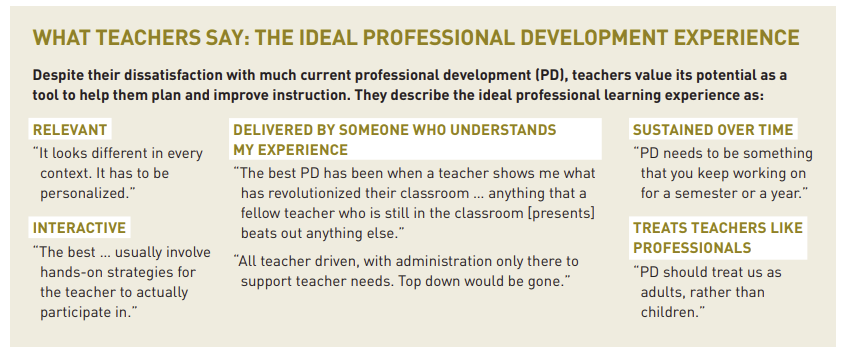Building Trusting Coaching Relationship

Establishing a trusting and respectful coaching relationship is vital for successful professional development (PD) and acquiring desirable outcomes (Kim & Kuo, 2015). To build a strong, professional coaching relationship, a fundamental step is to build rapport. There is always a beginning in a relationship, which can set a tone for how the relationship will develop. A Korean proverb says, ‘You have to put the first button right,’ meaning you must get off on the right foot. You may be part of the Professional Learning Community (PLC), sharing the same interest and concerns to be referred by educators through conferences and workshops. Or, hired by the school district as a designated coach for PD, whatever the situation may be, the question is: How do we establish trusting and respectful coaching relationships?
There are many pieces of advice for building a successful coaching relationship. Listen actively, empathize, and display genuine interest in their goals and challenges. Encourage the coachee by giving feedback and, setting expectations, offering open and transparent communication (ChatGPT, 2023). However, it gets even more complicated when we have to build a rapport and coaching relationship in a given time, as most will agree we need time to foster trust and respect. The reality in a professional setting is that we don’t have the luxury of time. Developing successful coaching relationships has become more crucial because extensive research supports that coaching and collaboration are highly effective methods for PD. School systems and leaders have recognized their potential. They are directing their efforts toward coaching, feedback, and professional learning communities (PLCs), where teachers collaborate to address shared challenges and enhance learning. (Johnson, 2016).

Solution
Even in a professional relationship, having a personal connection is essential. Sometimes, just having a coffee and grabbing lunch together to get to know each other helps to build rapport. Through casual conversation, you may pick up vital information that could make you more personal, culturally sensitive, and connected. These are some helpful tips that have worked for me in the past.
Share credentials and experience: Whether using an app like LinkedIn or being referred by someone through an introduction, providing a brief overview of your credentials, qualifications, and experience as a coach could remove anxiety. Don’t be shy about your experience and expertise. It helps instill confidence and respect, demonstrating your competence.
Active listening and empathy: Pay full attention, acknowledge their feelings, and empathize with their experiences. This will create an atmosphere of trust and understanding. Also, keeping your communication transparent will set clear expectations and foster trust.
Follow through with expectations: You must always keep your word and be professional. This includes punctuality, delivering on promised actions, and providing support when needed. Consistency and reliability contribute to building trust. Also, use evidence-based, reliable sources and research to provide a solid foundation for your coaching. This will save you time to gain trust.
Regular feedback and progress assessment: Provide regular feedback and assessment of the progress. Be flexible. The coach’s goal is not to press on what was prepared but to work together to accomplish the learning goal. Offer constructive feedback, acknowledge achievements, and provide guidance for improvement. Encourage them so that they stay interested in the topic and they don’t give up before seeing the real benefit. This demonstrates your commitment to their growth and development.

ISTE Coaching Standard 3 Collaborator states that: Coaches establish productive relationships with educators in order to improve instructional practice and learning outcomes. Coaches:
- Establish trusting and respectful coaching relationships that encourage educators to explore new instructional strategies.
- Partner with educators to identify digital learning content that is culturally relevant, developmentally appropriate and aligned to content standards.
- Partner with educators to evaluate the efficacy of digital learning content and tools to inform procurement decisions and adoption.
- Personalize support for educators by planning and modeling the effective use of technology to improve student learning.
No doubt trusting and respectful coaching relationships take time to develop; however, by demonstrating shared passion and dedication for teaching, you can foster trust even within a short time. Through successful coaching relationships and collaboration, educators could enhance PD. “We owe it to them to find new ways to ensure that PD is relevant, interactive, and sustained over time (Johnson, 2016),” as a result, it will improve student learning.
References
Bill & Melinda Gates Foundation. (2014). Teachers Know Best: Teachers’ Views on Professional Development. https://usprogram.gatesfoundation.org/news-and-insights/usp-resource-center/resources/teachers-know-best-teachers-views-on-professional-development
ChatGPT, personal communication, July 6, 2023
Johnson, K. (Jun 28, 2016). 5 Things Teachers Want from PD, and How Coaching and Collaboration Can Deliver Them—If Implementation Improves. EdSurge. https://www.edsurge.com/news/2016-06-28-5-things-teachers-want-from-pd-and-how-coaching-and-collaboration-can-deliver-them-if-implementation-improves?utm_content=bufferfa66c&utm_medium=social&utm_source=twitter.com&utm_campaign=buffer
Kim, S., & Kuo, M.-H. (2015). Examining the Relationships Among Coaching, Trustworthiness, and Role Behaviors: A Social Exchange Perspective. The Journal of Applied Behavioral Science, 51(2), 152–176. https://doi.org/10.1177/0021886315574884

Thank you for the great post! I like how cultural relevance was included in PLC interactions. Leveraging online platforms like LinkedIn can be valuable for professional learning and staying updated with relevant information in a shorter period. This has given me some good ideas for enhancing my PLC 🙂